Challenging the troubled dichotomy between perfection and the unfamiliar, Tokyo James projects severity and youthful optimism for spring-summer 2025.
HARNESSING the power and provocation of cultural shifts is no mean feat in a system that has long demonised minorities at the expense of white privilege. In the Italian fashion industry, people of a certain generation tend to have boldly held convictions about their innovators and the influence of their practice, detaching from the yearning to embrace diverse backgrounds and progress from their foreign counterparts. Is it laziness or mere exclusion?
Whatever it is, this is the tricky terrain Tokyo James pondered over for his spring-summer 2025 show, looking at the beauty of imperfection and the manifold connotations it harmonises. It all made for compelling craft. “Imperfection is the name of this season’s collection,” explained Tokyo James backstage post-show.
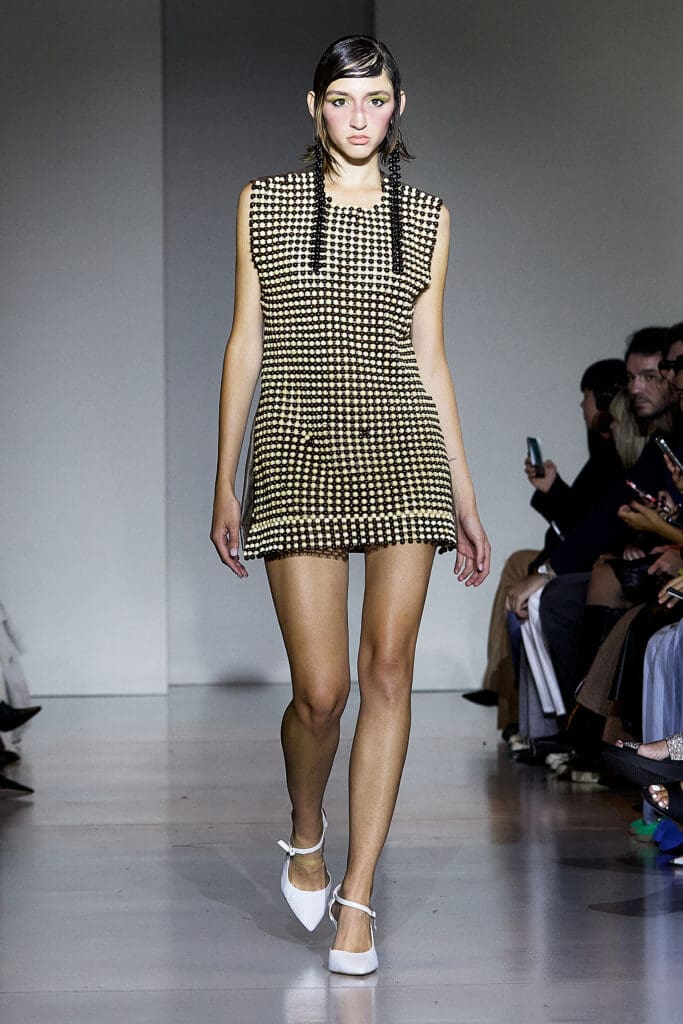

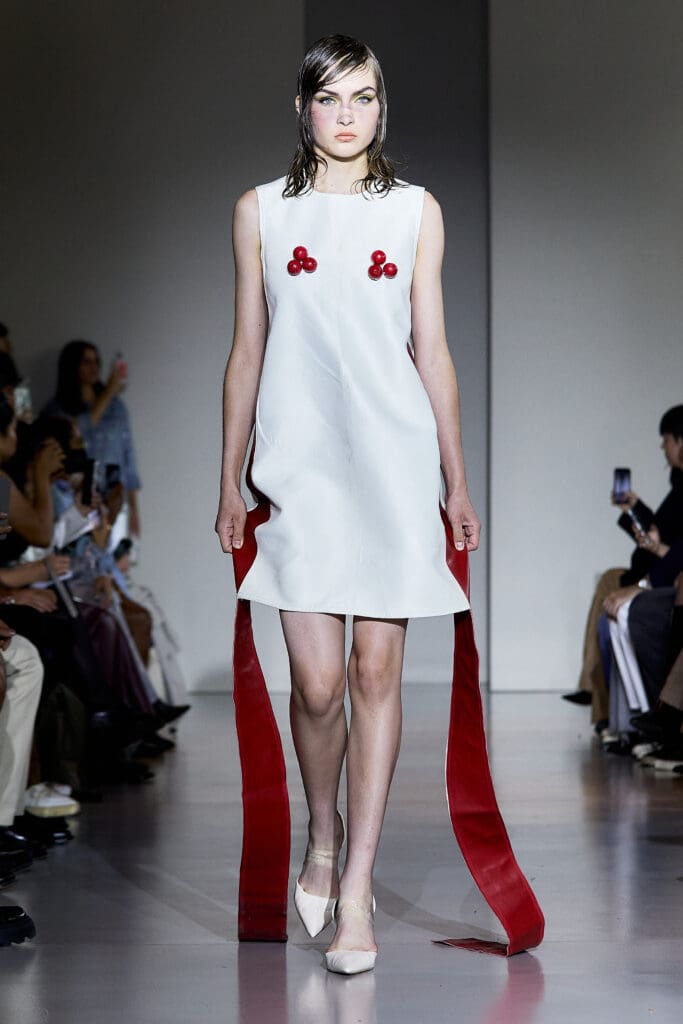
“Life is not perfect, so why should clothes be? I posed myself a question on how to make perfect clothes look imperfect, and hopefully you will be able to discern the wonky seams here and there.” James looked to the enduring pantheon of cultural references of his Nigerian heritage which touch on a brilliant storytelling made of colour, beading and weaving.
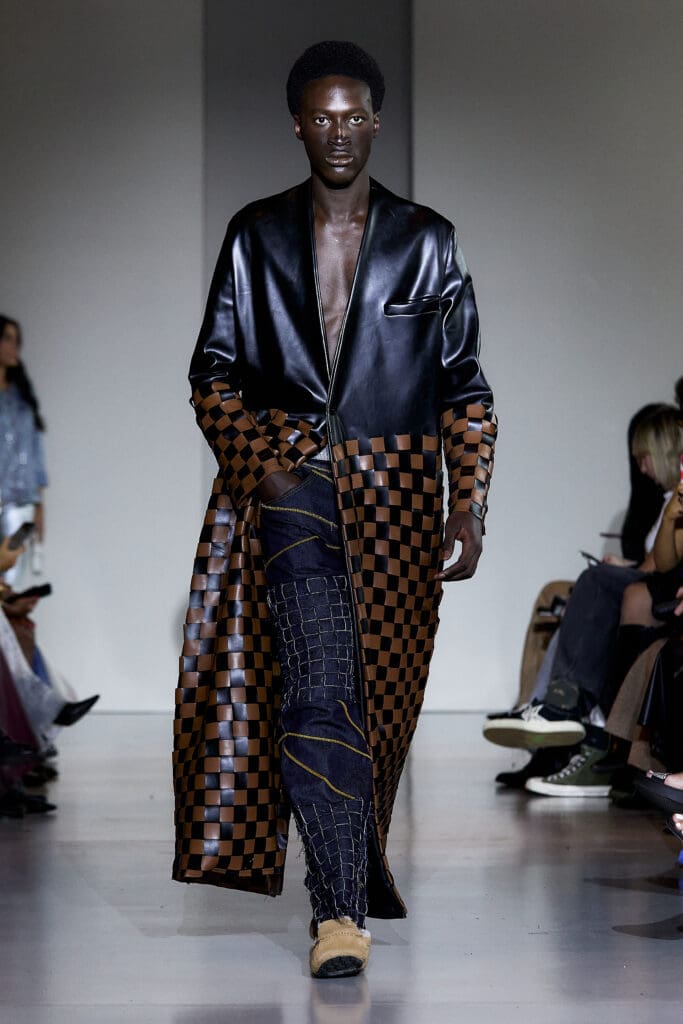
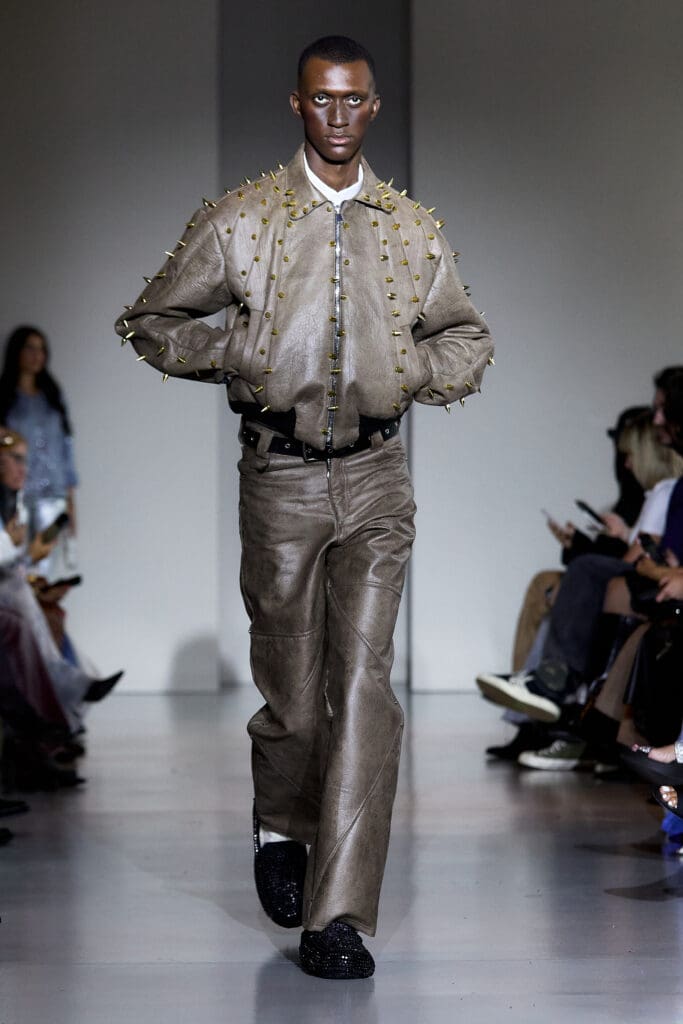
He cites Lagos—one of West Africa’s largest and most populated cities—as his main reference point, “basically because it’s chaos,” opined James. “It’s honestly the epitome of chaos, but it works!” he exclaimed. The collection was, in other words, charmingly loud and acceptably chaotic, much like the vibrancy of Nigeria’s societal scene. What lacked in technicality made up for in authenticity—that is, if you could look past several styling flaws like wobbly heels, and blazers that had rough trims.
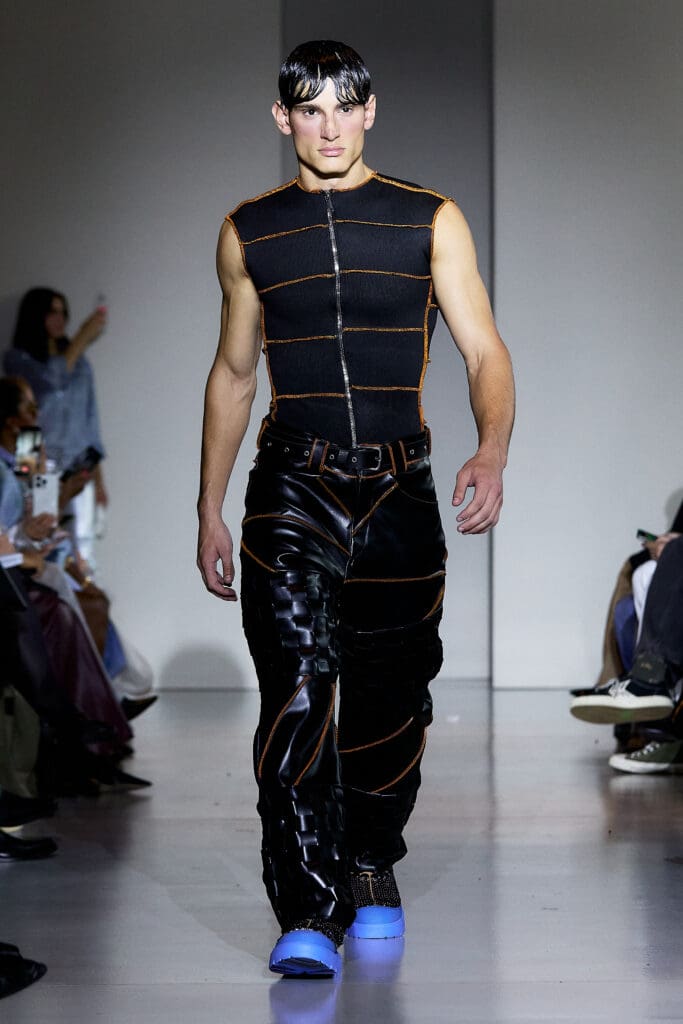
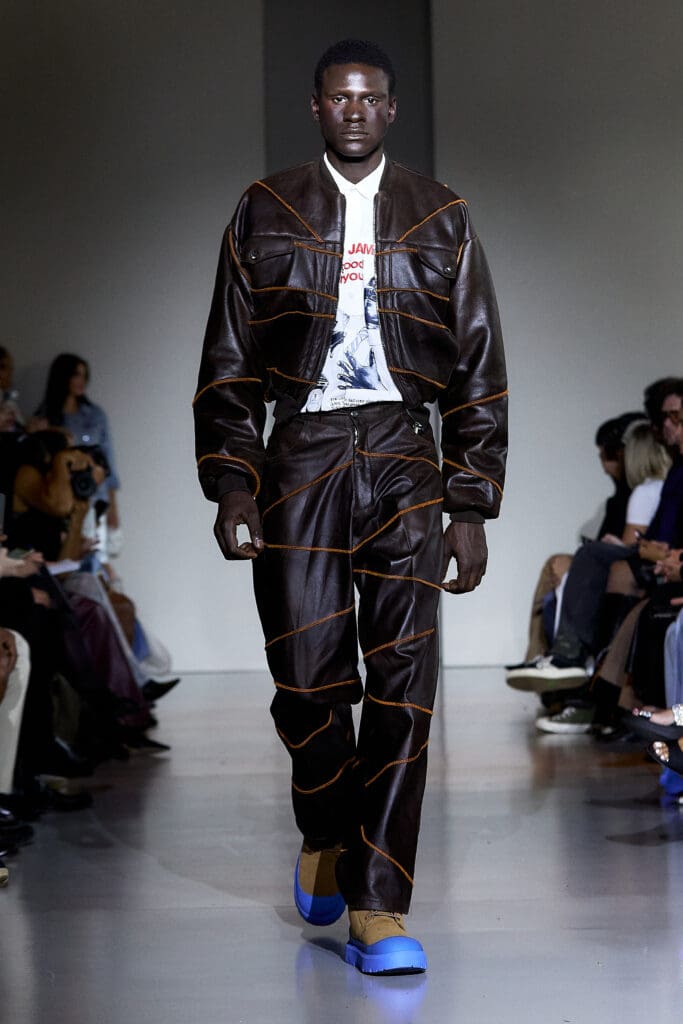
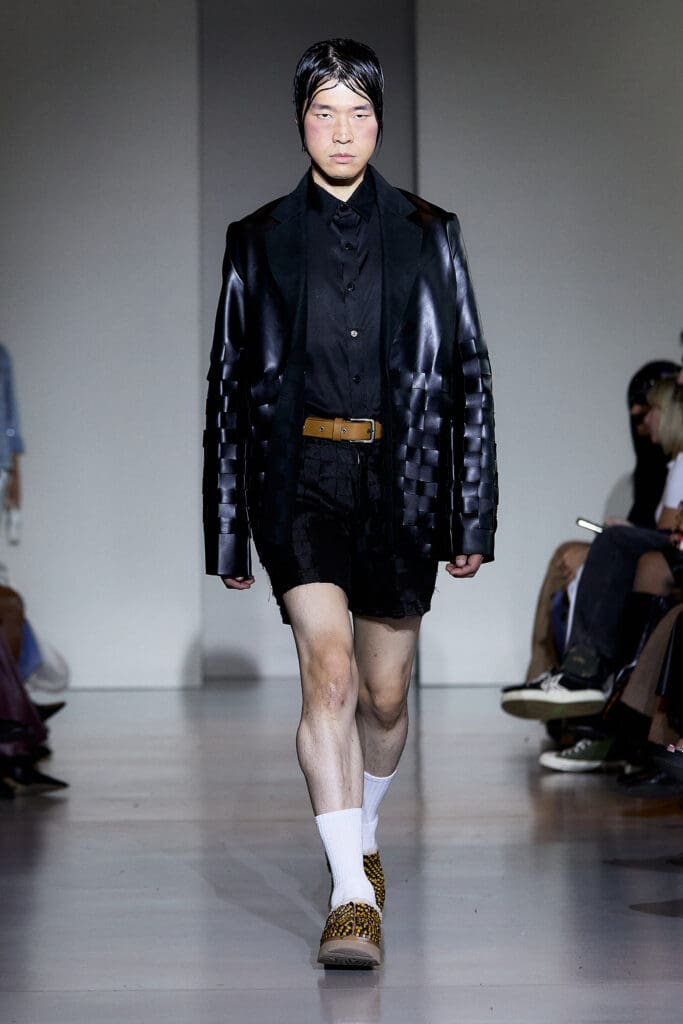
While the menswear had sharply-cut tailoring that felt commercially appetible, they also had a relaxed fit with elevated minimalism, quite reductionist. And though some ideas might have been better paired with more colour—such as the knitted vests, extra-wide toppers and flared, breezy pants—the collection’s volumes kicked and swaggered in all the right ways.
“Clothes, like life itself, are a reflection of personal journeys and nature,” James noted, detailing how items are connected by threads of similarity, yet not needing to be ‘cloned’ to hold value or relevance “in the greater tapestry of existence, whether for function or aesthetics.”
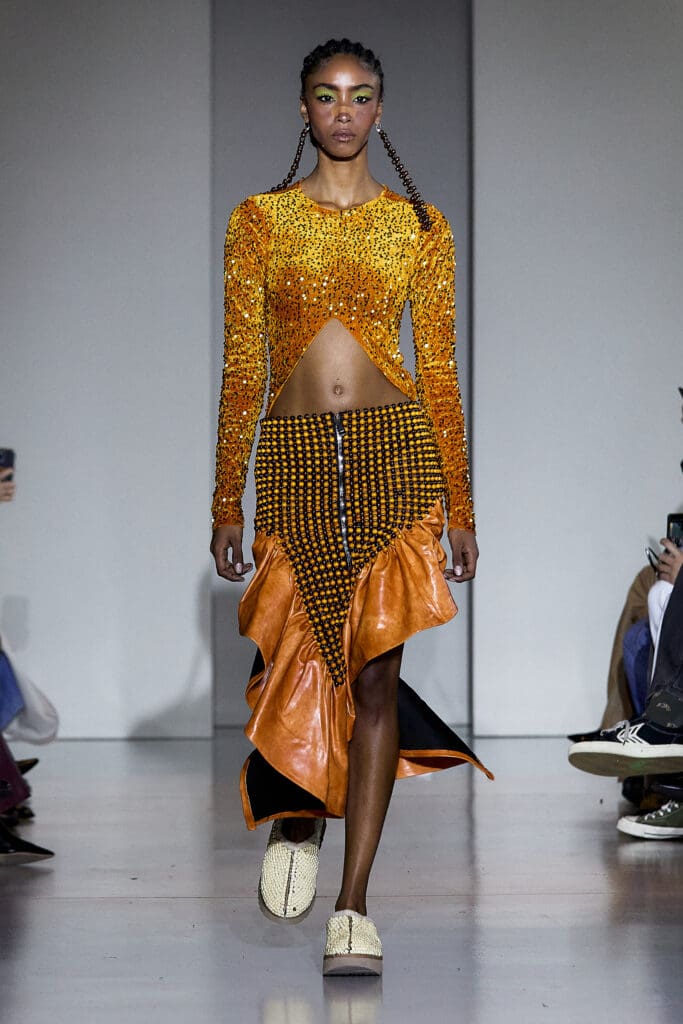

His mantra lies in the power of craftsmanship, and since showing in Milan he has been able to amplify his path as an independent designer. “To me, clothes are an expressive journey with a functional purpose, rather than rigid notions of originality.”
Viewed from the comfortable distance of a runway scrum—one that seemed enthusiastic —it was a cohesive offering. Call it an earnest signal of the designer’s relentlessness to get his hands dirty, “to provide a legacy,” he concluded, smiling.
by Chidozie Obasi
